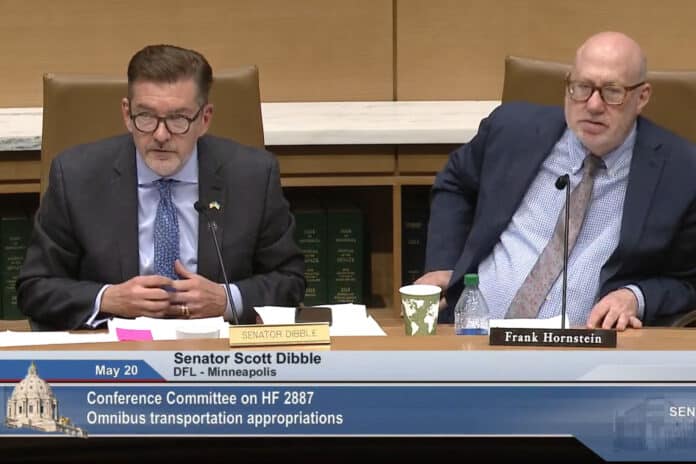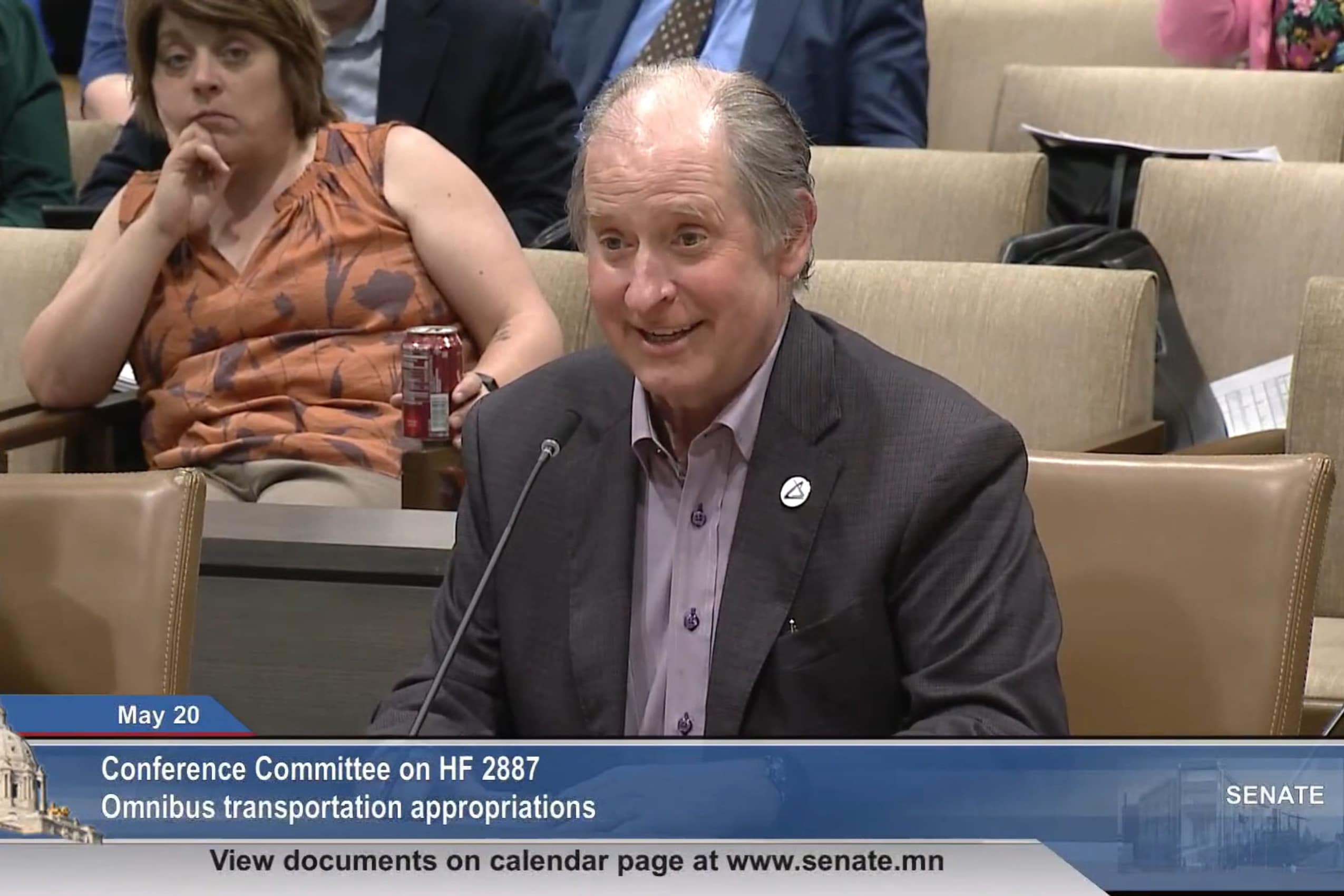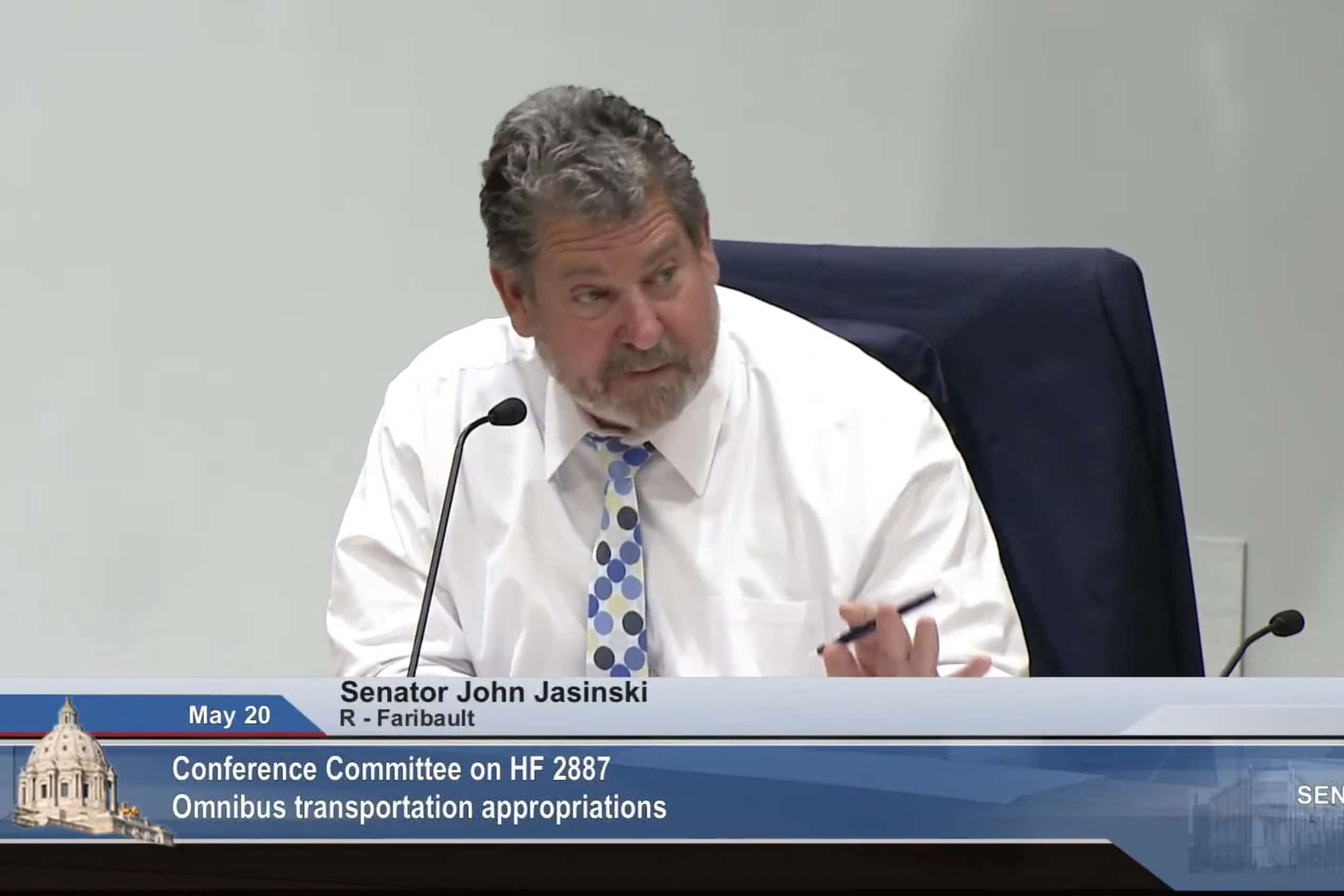
Members of the House and Senate are set today — in the final hours of the legislative session — to vote on a conference report for an omnibus transportation bill that will implement a new gas tax, a 50-cent delivery fee on goods totaling more than $100 and a metro area sales tax increase of 0.75 percent.
Together, all three of those newly agreed upon revenue streams are estimated to generate nearly $1 billion over the next four years to fund transportation projects and operations across the state of Minnesota, according to the spreadsheet published Saturday afternoon.
Republican leaders in the House and Senate have made it clear they oppose the gas tax increase and delivery fee and are expected to argue on the floor against their inclusion in the conference report, even as Democrats hold majorities in both chambers.
Gas tax increase indexed to inflation
On Saturday evening, legislators on the conference committee for HF2887 adopted their full conference report, which includes the gas tax increase — somewhat of a late entry into the discussion at the Capitol this session. That addition to the transportation legislation will index the already existing gas tax to inflation based on the Minnesota Department of Transportation’s construction cost index, capped at 3 percent every year. Effectively, this will equate to a 5-cent increase on gas at the pump by 2027, fiscal analysts told legislators in the conference committee meeting on Saturday. That will generate a total of $421 million.
Sales tax increase for metro area
The conferees also agreed on a new 0.75 percent sales tax increase on the Twin Cities metropolitan area that is estimated to generate more than $347 million in new revenue for Metro Transit and metro area counties over the next four years. About 87 percent of those newly collected taxes will go to Metro Transit, and the remaining 17 percent will be distributed to counties “based on population and money needs,” said Krista Boyd, fiscal analyst for the Minnesota Senate.
Metropolitan Council Chair Charlie Zelle thanked the conferees for providing a “recurring, sustainable” financial boost to the Metro Transit system, which has seen its fair share of operating losses and safety issues over the last few years.

“We will have an opportunity to plan and make the kind of not just investments, but business plans to run a quality interconnected system,” Zelle said.
50-cent delivery fee on $100 or more
The much-debated delivery fee that was thought to have been abandoned by DFL Senate leaders found its way into the final agreement. Conferees adopted a modified provision that would charge a 50-cent “road maintenance fee” for any retail deliveries over $100. All food and clothing are exempt from the formula.
While transportation and environmental lobbyists who spoke during the Saturday conference committee meeting lauded the delivery fee as part of what they called a “transformational” bill to tackle the climate crisis, Republican legislators on the committee were skeptical it would provide a net benefit for Minnesota everyday businesses and consumers.
“Obviously I am concerned about the revenue increases, including the delivery fee,” said Sen. John Jasinski, R-Faribault, one of two Republicans serving on the 10-person conference committee for the transportation bill.

Jasinski reminded conferees and transportation lobbyists in the audience that businesses who receive deliveries every single day across the state will bear the brunt of those new delivery fee costs.
“Remember, those delivery trucks pay motor vehicles sales tax, they pay tab and licensing fees, they pay gas taxes,” Jasinski continued. “They are always paying all those things and now we are adding one more fee on top of them. I know the way business works, and those fees are going to get passed onto us.”
Despite those concerns, conference committee co-chair Sen. Scott Dibble, DFL-Minneapolis, said the delivery fee, gas tax and metro sales tax round out a “package we can be proud of and we worked very hard at and look forward to further conversation on the floor of the Senate and the House in the coming day.”
“Hopefully, in 24 hours or so from now, we’ll have something on its way for the governor to sign,” Dibble said.
Hank Long
Hank Long is a journalism and communications professional whose writing career includes coverage of the Minnesota legislature, city and county governments and the commercial real estate industry. Hank received his undergraduate degree at the University of Minnesota, where he studied journalism, and his law degree at the University of St. Thomas. The Minnesota native lives in the Twin Cities with his wife and four children. His dream is to be around when the Vikings win the Super Bowl.














